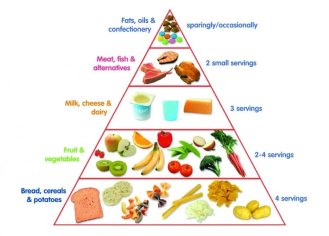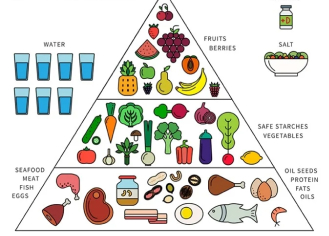What is Alkaline Diet?
The alkaline diet is based on the idea that certain foods can affect the body's pH levels and promote overall health. Advocates of this diet claim that consuming more alkaline-forming foods and reducing acid-forming foods can lead to various health benefits. However, it's important to note that scientific evidence supporting these claims is limited, and the diet may not be suitable for everyone.
The alkaline diet categorizes foods based on how they affect the body's pH levels when digested. Acid-forming foods have a pH below 7, while alkaline-forming foods have a pH greater than 7. The diet recommends avoiding acid-forming foods like meat, dairy, and grains, and consuming alkaline-forming foods such as fruits and vegetables.
However, scientific evidence does not support the idea that changing the body's pH through diet has significant health benefits. The body's pH is tightly regulated by the kidneys and lungs, and the alkaline diet is unlikely to have a major impact. The diet's claims of treating diseases like cancer and kidney disease lack scientific backing.
Regarding specific health benefits, there is limited evidence to support the alkaline diet's effects on conditions like osteoporosis, cancer prevention, and chronic kidney disease. Some studies suggest that a plant-based, alkaline-rich diet may be beneficial for heart health and reducing hypertension and stroke risk.
Dos
- Fruits and Vegetables: Include a variety of colorful fruits and vegetables.
- Whole Grains: quinoa, brown rice, and oats over refined grains.
- Plant-Based Proteins: beans, lentils, tofu, and nuts.
- Stay Hydrated: Drink plenty of water to support overall health and hydration.
Don'ts
Acid-Forming Foods: Limit or avoid foods like meat, dairy, processed foods, and sugary snacks.
Acid-Forming Foods:
- Meat
- Poultry
- Fish
- Milk
- Cheese (especially Parmesan cheese, reduced-fat cheddar, and hard cheeses)
- Yogurt
- Ice-cream
- Eggs (the yolk in particular)
- Grains (brown rice, rolled oats, spaghetti, cornflakes, white rice, rye bread, whole-wheat bread)
- Soda
- Lentils
- Peanuts and walnuts
- Other packaged, processed food
Limit Alcohol and Caffeine: Alcoholic beverages and caffeine may be limited, as they are considered acid-forming.
Recipes
- The Alkaline Soothing Gut-Healing Soup
- The Chai Spiced Quinoa Breakfast Porridge
- Anti-Inflammation Soup
- The Alkaline Power Smoothie
- Coconut & Chia Cream Pot
- The FILL YOU UP Salad
- Cauliflower ‘Buffalo Wings’
- Cool Quinoa Summer Salad
- The Alkaline Green Stir Fry
- The Anti-Inflammatory Smoothie
For Images:
Was this article helpful?
Similar Articles


